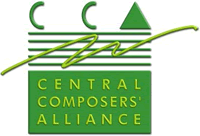|
CCA Composer of the Month, MARCH 2013
Your featured Composition(s) of the Month:
SYMPHONIETTA
Instrumental and/or vocal resources used:
FULL SYMPHONY ORCHESTRA
First performance details – if relevant:
8th MAY 2010
Performers on your recording – if relevant:
BIRMINGHAM SCHOOLS´ CONCERT ORCHESTRA conducted by Bob Vivian
Of the work(s) you have selected for the Composer of the Month feature, what was the source/inspiration/commission which set this piece or these pieces in motion?
No particular commission; I had always wanted to write for this orchestra for whom I guest as an orchestral pianist, celesta player or harpsichordist. The opening of the final movement is influenced by the opening of Mendelssohn`s Italian Symphony.
What would be a good programme note for this work which explains the structure, use of melody and harmony and any technical points related to the performers?
It is a three-movement work for full symphony orchestra and a dark, rather brooding slow movement which is largely monothematic flanked by two quicker movements, the FIRST rather dramatic with a lighter second subject in 7/8 time.
The central part of the movement is unashamedly “filmic”; John Williams may come to mind! As stated, the MIDDLE MOVEMENT is dark and is based on a simple rising figure which recurs throughout the movement.
The FINAL MOVEMENT is fast with an extrovert opening theme, and is again influenced by film-music composers. The influence of Malcolm Arnold is detectable in this movement, particularly in the main second theme! At the end of the movement the opening theme is recapitulated as a fugato before the piece ends with a flourish. [The SCORE of this movement is also available here]
When did you first start composing and what was your first piece?
When I was about 5. I began writing hymn-tunes, but my first “real” composition was a piano concerto, which I used as an example of my work to audition for the Royal Academy of Music in 1970.
Who was it that first encouraged you to develop your interest in composing and how did they help?
My mother. From a Welsh background, she encouraged me to play the piano at home and there were books of Mendelssohn`s Songs Without Words – a composer I`ve always admired – and Beethoven sonatas.
Who do you consider your greatest inspirations in terms of the major composers and which of their works has influenced you the most and why?
Vaughan Williams, Bach, Gershwin, Copland, Walton and Arnold are the composers I feel have influenced me the most. VW particularly. I love his music and, along with Gershwin and Bach his music can have a strong emotional impact on me. Two totally different works – the Fourth and Fifth symphonies - are absolute masterpieces. I also love the underrated Eighth – a marvellous late work!
How would you describe your style to someone who has never heard your music before?
Highly derivative – hopefully from very good sources!
What do you feel is original in your music?
Not much! I`ve spent my life studying scores of composers to see how it is done!
How do you work? What methods of creativity and work ethic do you have? Do you solely use musical technology or do paper and pencil still form a part of your process?
Yes, I use Sibelius 4 at present, but still like to sketch ideas using the old-fashioned methods of pencil, paper and eraser!
What project(s) are you currently working on?
An overture-length piece for Birmingham Schools’ Concert Orchestra
To finish, who or what is your favourite:
Genre of Music?
Orchestral, 70s Big Band Jazz
Instrumentalist?
Herbie Hancock – a most marvellous all-round musician
Singer?
Dionne Warwick, Dusty Springfield
Chamber Ensemble?
No real preference for any ensemble in particular
Orchestra?
Any of the top American orchestras
Concert Venue?
Symphony Hall, Birmingham
Piece of Music
Vaughan Williams Symphony no 5:
it brings tears to my eyes every time I hear it: the big C minor/E major modulation in the first movement never fails to move me. The beautiful slow movement and its yearning suspensions are, to me, the work of a great composer. Finally I must mention the closing pages of the last movement. How can such wonderful, serene music be written in the midst of such a terrible world war?


